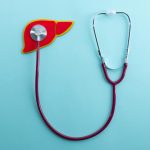Myths of Fatty Liver Disease
Did you know the liver is known as a silent organ? This is because liver diseases don’t usually come with a visible set of symptoms. Even if some symptoms show up early, people often disregard them as another, less serious health issue. As a result, liver diseases usually remain undiagnosed for decades until the damage gets out of hand.
One of the best ways to get an early diagnosis of fatty liver disease in its early stages is to have the right knowledge about it. Read on to learn about the liver and common misconceptions people have about liver diseases. We have also highlighted the role of a liver support supplement in maintaining your liver health.
What Does The Liver Do?
Located in the upper-right portion of the abdominal cavity below the diaphragm and above the stomach, the liver is a dark reddish-brown organ that performs almost 500 functions to keep your body healthy. Its main function is to filter everything you consume.
When you consume something, it is first digested by the stomach and intestine. It then gets absorbed into the blood and goes to the liver. The liver detoxifies the nutrients and passes the toxins out of your body through urine and stool. It also stores some nutrients and releases them into the blood when needed.
Myths of Liver Disease
Myth 1: Yellow Skin and Pain in the Liver Area Signify Liver Disease
Liver diseases like liver cirrhosis and chronic hepatitis don’t usually involve any alarming symptoms in their early stages. For example, fatigue is a common symptom of fatty liver disease, but it can result from multiple other reasons, not just liver damage.
Moreover, people suffering from liver diseases may still have enough liver function to support their body’s daily routine. So, it’s quite possible to have a fatty liver and not know about it.
The more serious and apparent symptoms of liver damage, like pale skin, yellow eyes, and leg swelling, show up only when the dysfunction or failure sets in.
Myth 2: Alcohol is the Main Cause of a Fatty Liver
People automatically think of alcohol when they hear about liver disease. Although alcohol can significantly damage the liver, many other things have the same damaging effect.
Some major causes of a fatty liver, except alcohol, are an unhealthy diet, diabetes, drugs, autoimmune diseases, genetics, and obesity.
Myth 3: Hard-Spirited Alcohol Affects Your Liver More than Wine or Beer
The type of alcohol you drink doesn’t matter as much as how much you drink. It’s wrong to think that drinking a good quality wine won’t damage your liver, even if you drink in copious amounts.
If giving up alcohol completely is not possible for you at this point, make sure you check the guidelines on safe drinking limits to prevent significant damage to your liver.
Myth 4: Only Adults Suffer From Liver Disease
Most people think it’s not possible to develop serious liver diseases and disorders at a young age. But obesity induced by unhealthy eating habits can even put children at risk of liver damage. People may also develop liver diseases if they come into contact with a liver-damaging toxin or a virus.
Myth 5: Only Fat People Have a Fatty Liver
People of any weight can develop a fatty liver, even if they don’t have any underlying medical issues. More precisely, an unhealthy lifestyle puts you at risk of fatty liver disease. This means people who are not fat can also develop a fatty liver if they have an unhealthy diet and don’t exercise.
Besides a healthy diet and exercise, some people may also benefit from a liver support supplement that contains effective ingredients like Nrf2 (a protein that regulates cellular resistance to oxidants, playing a protective role during inflammation, fibrogenesis, and carcinogenesis).
Myth 6: Liver Conditions Can Be Detected by Blood Tests
Liver problems are hard to diagnose - they don’t show any signs in the early stages and can easily evade routine tests and detection. Hence, transaminase levels measured through regular blood tests alone can’t unveil the underlying problem. If a doctor suspects a liver problem, they will ask the patient to get tested for AST and ALT markers to see the signs of cell destruction in the liver.
Myth 7: Liver Damage Can Always be Reversed
The liver is an amazing organ with the ability to regenerate itself when damaged. However, it doesn’t get a chance to heal itself if the damage is severe or prolonged.
The liver may stiffen, develop scars, and ultimately stop working when exposed to severe or prolonged damage. In such cases, liver transplants with lifelong medication remain the only survival options.
Natural Ways to Detoxify Your Liver
Following a Healthy Diet
Diet plays a vital role in the overall health of your liver. Make sure your diet includes liver-friendly foods like whole grains, fruits and vegetables, lean protein, dairy, and healthy fats.
Limit Alcohol Consumption
The more you drink, the harder your liver has to work to process it. Find out drinking limits that are comparatively safer for your liver.
Find an Effective Liver Support Supplement
Liver probiotics may help detoxify the liver. For example, LivFit by The Good Vitamin Company promotes healthy gut flora (the microbiome that plays a vital role in keeping your liver healthy). Adults of 18 years and older can take one capsule daily, at least 2 or 3 hours before or after antibiotics. Get in touch with us if you need more details on live culture probiotics and their benefits.

